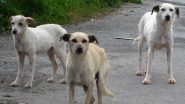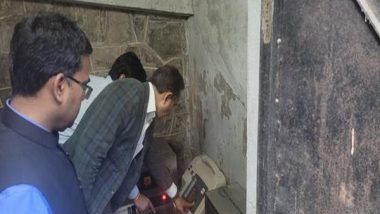New Delhi [India], December 3 (ANI): Union Minister of State for Forest, Environment and Climate Change, Kirti Vardhan Singh on Tuesday launched 'Nano Bubble Technology' for cleaning and purifying water of the National Zoological Park in Delhi, and to promote the health of aquatic animals.
According to an official release, this technology can effectively clean dirty pond water by eliminating algae and similar growths. It is being tested in the zoo for the first time as a 15-day trial. If successful, it will be used in the zoo.
Also Read | Budaun Shamsi Shahi Jama Masjid Dispute: Court Asks Muslim Side To Complete Arguments on December 10.
Kirti Vardhan Singh explained that the primary goal of this technology is to keep water clean, ensuring the health and well-being of aquatic creatures. "Clean water helps prevent foul smells, algae buildup, and discolouration often caused by dirty pond water. This new technology will improve water quality and benefit the animals," he said.
National Zoological Park Director Sanjeet Kumar, Senior Officers of the Ministry and Anand Kapoor from the Nano Bubble Company were also present on the occasion.
Also Read | Wildlife Trafficking Busted: 3 Arrested With Suspected Chital Meat in Madhya Pradesh.
Meanwhile, special measures, including the use of water sprinklers, have been implemented at the Delhi Zoo to combat air pollution and ensure that wild animals are not adversely affected.
The Director of the National Zoological Park, Dr Sanjeet Kumar, on November 19, highlighted the challenges faced by zoo management during winter.
Speaking to ANI, Dr Kumar said, "As soon as the winter season begins, the zoo management faces two challenges. First, the pollution levels rise after Diwali, and second, the onset of winter... The area around the zoo is very green, and local pollution is minimal as no diesel or petrol vehicles are allowed inside. However, water sprinklers are used to mitigate the effects of pollution."
He added, "We prioritise winter management to ensure the wild animals remain unaffected by the cold. A special vehicle sprays fine droplets of water to reduce pollution levels. The animals are provided with a winter diet enriched with fats, and heaters have been installed to keep them warm." (ANI)
(This is an unedited and auto-generated story from Syndicated News feed, LatestLY Staff may not have modified or edited the content body)













 Quickly
Quickly
















